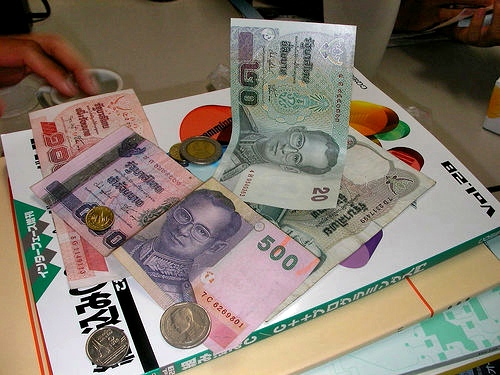
During my 14 years living in Thailand, I often get asked by Americans wanting to come here, “Are opportunities better in the U.S. or in Thailand?” When I first moved to Thailand, I was convinced opportunities in Thailand were better than in America but, almost 15 years on, and I have to admit my opinion has changed.
Opportunities are good for some people in Thailand but, for others (most westerners), opportunities in Thailand are minimal at best.
In the U.S., there are opportunities for everyone, regardless of age, sex or education level and even regardless of the terrible U.S. economy. If you are thinking of coming to Thailand, think about the following things before you make that decision. As you may find the opportunities you expect to find as a farang (a westerner) in Thailand, don’t really exist.
Jobs in Thailand are for Thais – As much as is conceivably possible, most Thai companies will give a job to a Thai before they’ll give it to a farang. I have now worked at four jobs in Thailand, worked hard at every one and been told I would get promotions or be moved from being a teacher to a higher-paid position. In every company, I have been let down or outright lied to.
At my last job at a big four international accounting firm in Bangkok it was discussed over and over again by partners of the company that, if I continued to work hard, I’d likely get a marketing position. Of course, the position never materialized and was the reason why I finally quit my job and decided never to teach in Thailand again.
Other farangs report the same thing; being continually strung along by Thai employers, promising new opportunities, better job titles, more money and a chance to get out of teaching. Few of them report any of these ‘opportunities’ ever materializing.
Because, when push comes to shove, most Thai companies will give a job to a Thai before they’ll give it to a farang. Protecting their own, as they say.
In the US, you cannot protect jobs for specific sets of society as that is called discrimination. Unfortunately, the Thais don’t see it that way, and they are the losers for it. Most farangs with any high-level skill sets move on from Thailand to countries like Japan and Malaysia, countries where their skills are valued and utilized.

Salaries in Thailand are Low – For many positions in Thailand, salaries are low and opportunities just aren’t there. Farang teachers in Bangkok make an average of 35,000 to 50,000 baht a month ($1,000 to $1,400) and outside Bangkok it’s often less.
Salaries also don’t rise much (in fact, average salaries for teachers in Thailand have not risen in more than 25 years). In seven years of teaching in Thailand, my salary went up by 4,000 baht (just over $100 a month) and I was soon maxed out as I was at the highest salary level most teachers can hope to achieve.
For a nice lifestyle, what I was making was a good enough salary, but if I wanted to save or put money away for retirement it was nigh on impossible.
If you have a job with a company as an expat (i.e.: hired outside Thailand) the salaries are true expat salaries and often much higher than you’d ever receive in the US. But these jobs are difficult to get and, except for rare cases, are always hired outside Thailand.
In the US, salaries have always increased for me and often over 10% per year. Living now in a country, where a good annual pay increase is $30 a month, it makes me realize how good I had it job-wise when I was in America.
Farangs are Not Allowed To Take Most Jobs – In Thailand, most jobs are blocked to anyone who is not Thai so that cuts out most opportunities. Farangs can work as teachers, we can own our own businesses (although a Thai has to own 51% of the business) and, in some cases, we can get into editing, marketing or sales. Overall though, most jobs in Thailand are blocked for farangs as it’s against the law for us to do them.
In the US, no jobs are blocked. If you have the expertise, the education or are willing to learn, you can do any job you want. Oh that Thailand was the same.
Opening a Business in Thailand – There are opportunities for opening businesses in Thailand and quite a few farangs have done well. Except for exceptional cases, however, most businesses can only be owned 49% by a farang and 51% by a Thai.
If you have a Thai wife or a business partner you trust, then this is the way to go. Unfortunately though, there are too many farangs who have been burned by Thai wives or Thai business partners for me to ever put my hard-earned money into a business that’s not truly owned by me.
In the US, you can open a business anywhere and it is owned 100% by you. Sure, Thailand, (and Asia!) looks set to have outstanding growth in the next few years but, if I wanted a stable environment to open a business, I’d choose the US and not Thailand.
Jumping Through the Work Permit Hoops – Rules in Thailand change all the time for work permits, and are becoming more and more restrictive. In order to get a work permit in Thailand the company has to sponsor you and some companies just don’t want to as the cost for corporate work permits can be high.
If you own a business in Thailand, you have to hire four Thais, or you usually can’t get a work permit, even for yourself. A cost that can sometimes be cost-prohibitive not to mention a waste of time and effort.
In the US, with US citizenship, or even a green card, there are no hoops to jump through and the right to work in the US is guaranteed and permanent.
Overall, I do love Thailand and Thais and have enjoyed working here. If I am honest with myself though, most opportunities for me are in the US or Europe and not in Thailand, and many other farangs come to that conclusion every year.
Out of the 12 teachers that were on my teacher training course when I arrived in Bangkok 14 years ago, every single one, except me, has left Thailand for better opportunities, either back home or on to another country.
So, be aware, if you plan on coming to Thailand to seek your fame and fortune, it can be done, but with great difficulty and with a huge loss of time and energy.
